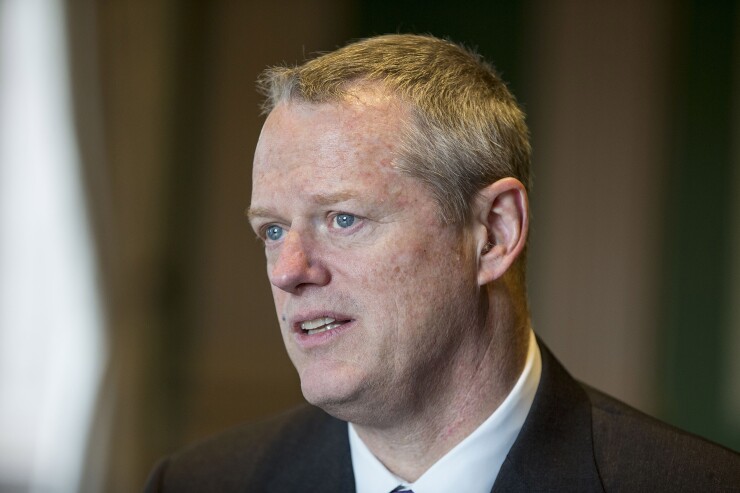Legislative leaders in Massachusetts expect to resume discussions this week over a fiscal 2019 budget.
Massachusetts is the only state yet to pass a budget, according to the National Association of State Budget Officers. A conference committee of Senate and House of Representatives negotiators still must resolve differences over a roughly $41 billion spending plan.

A $5 billion stopgap budget that Gov. Charlie Baker and the legislature approved will last through July. Baker is a Republican seeking re-election while Democrats control both the Senate and the House.
While neither side has discussed specifics, differences could resolve more about policy riders than on spending.
The commonwealth sent
S&P Global Ratings rates Massachusetts' general obligation bonds AA, while Moody’s Investors Service and Fitch Ratings rate them Aa1 and AA-plus, respectively. All three assign stable outlooks.
"Points of fiscal disagreement appear to be limited as both legislative branches continue to seek consensus," said Fitch. "Recent revenue experience has been favorable."
As have many other states, the commonwealth benefited from a timing-related bump in tax collections during fiscal 2018 tied to federal tax changes.
Given its strong performance in capital gains tax collections during FY18, the commonwealth made a $307 million net deposit to its rainy-day fund last month, bring its year-end balance to just over $1.6 billion, its highest level since FY12.
Massachusetts has issued a request for responses for a senior managing underwriter for new-money GO bonds and current refunding bonds.





